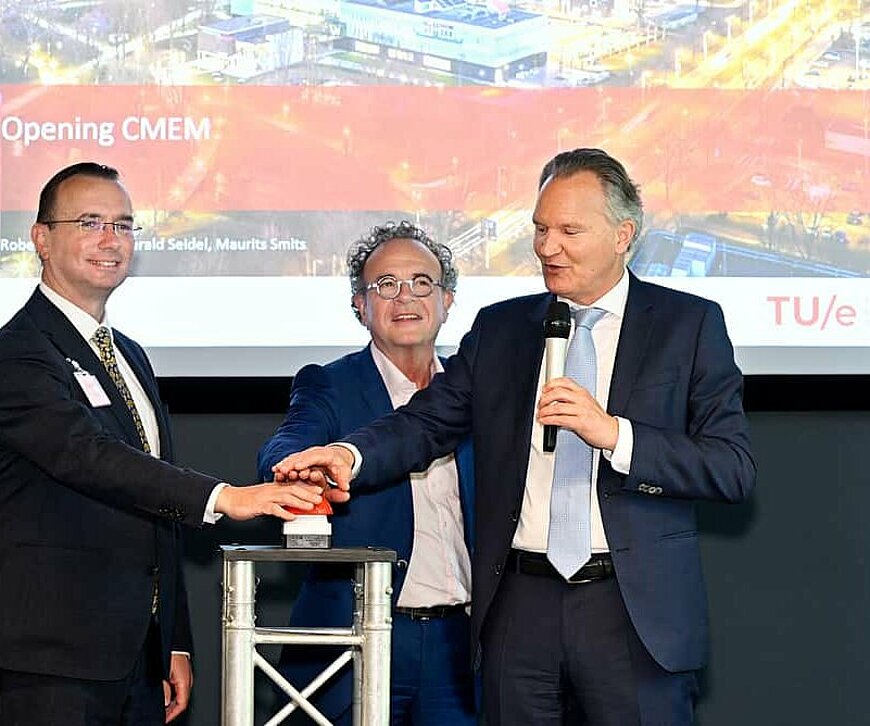TU/e opens electron microscopy lab

Eindhoven University of Technology (TU/e) has opened its new laboratory for electron microscopy on May 30 2023, the Center for Multiscale Electron Microscopy (CMEC).
The lab features some of the most advanced microscopes, among which a Glacios CryoTEM from Thermo Fisher Scientific, which allows scientists to see (in)organic materials with near-atomic resolution. At the opening symposium, the university signed a framework agreement with Thermo Fisher to extend the existing cooperation, says the university in a press release. The new laboratory was made possible by a contribution from DAF Trucks, which was donated in 2021 to celebrate the 65th anniversary of TU/e.
Visualization of complex molecules
The CMEM does not only offer scientists unrivaled resolution – electron microscopes magnify micrometer and nanometer structures by up to ten million times – it also allows fast visualization of complex molecules in their natural environment, which usually is in a vitrified liquid phase. The studied samples are frozen within a millisecond to 183 degrees below zero, after which they can be imaged in their frozen native state, offering scientists a snapshot of the processes taking place at molecular level. Subsequently, the CMEM microscopes and the reconstruction computers create 3D-images. These 3D images are crucial for a better understanding of protein complexes and the way they function.
Designing new molecules
Researchers will use the new lab to help design, develop and understand new molecules, materials and processes for applications in health, medicine, the energy transition and sustainability. The lab will not only be used by TU/e scientists, but also by academic partners and industrial parties.
Improving electron microscopy
At the opening symposium, TU/e and Thermo Fisher signed a framework agreement to extend their existing research cooperation, and to allow for cooperation in all science areas of TU/e. The main objective is to make electron microscopy even better and faster. The partners will exchange knowledge and are planning to develop new life sciences applications, in the context of, for example, protein structure analysis and nanomedicine development. Also, they want to realize higher throughput analyses of nanoparticle topology, which is very important for nanomedicine research.
